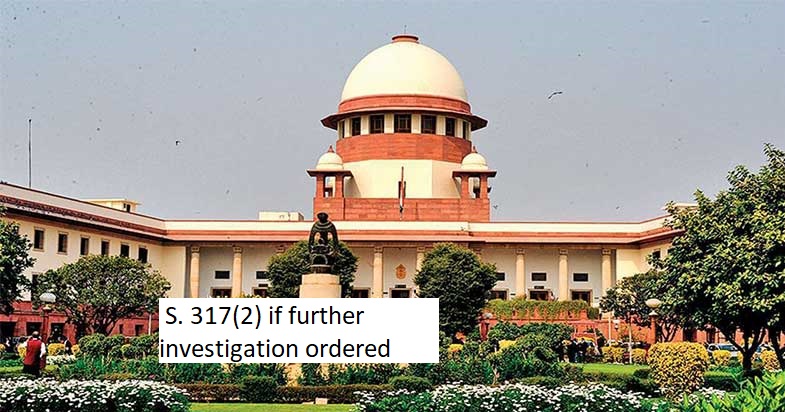


The recent pronouncement by the Supreme Court highlights the prohibition on splitting trials under Section 317(2) of the Criminal Procedure Code (Cr. P.C.), 1973 when further investigation has been mandated. Furthermore, such division is impermissible in the absence of a non-traceable certificate from the investigating agency. Section 317(2) of the CrPC empowers a Judge or Magistrate to either adjourn an inquiry or trial or order a separate trial for an accused, especially if the accused is not represented by a pleader, or if the personal attendance of the accused is deemed necessary.
The case in question involved an appeal against a Madras High Court judgment that allowed the Criminal Revision petition and sanctioned the split of the trial under Section 317(2) of Cr. P.C., 1973. The matter pertained to property damages and offenses under various sections, including 395, 397, 212, 120B, and Section 3 of the Tamil Nadu Public Property Damages Act, with 31 accused persons involved.
The Supreme Court bench, comprising Justices Abhay S. Oka and Pankaj Mithal, scrutinized the case, emphasizing the failure of the High Court to consider the reasons behind the Magistrate's decision and the authorization of further investigation on February 13, 2019. The bench noted that the Magistrate was unconvinced about the efforts made by the police to secure the presence of all accused individuals. Additionally, the order for further investigation, a pivotal factor, had been issued before the High Court's approval for splitting the trial. Consequently, the bench concluded that the High Court's authorization for the division was premature.
The genesis of the case dates back to 2016, coinciding with the announcement of demonetization. The petitioner alleged that the accused lured him into believing that he could exchange old notes (₹500 and ₹1,000) for new ₹2,000 notes. Subsequently, the petitioner was attacked, and the money was forcibly taken. After filing a complaint, the petitioner suspected collusion between the investigating officer and certain accused parties, compromising the investigation. This led to a representation to the Superintendent of Police, prompting a directive to file a petition under Section 173(8) CrPC for further investigation.
Respondent No. 1, seeking the trial's split, faced rejection by the trial court due to the ongoing order for further investigation. The subsequent move to the High Court resulted in the acceptance of the plea, leading to the division of the trial for some accused individuals. The High Court, noting the prolonged pendency of the case since 2016 and the unserved summons for three accused persons, directed the lower court to split the case for absent accused and continue proceedings against the remaining individuals.
The petitioner, represented by Advocate A. Velan, argued that the High Court's order lacked awareness of the Magistrate's decision on further investigation. Drawing on the precedent set by Subramaniam Sethuraman v. State of Maharashtra (2004 8 SCC 220), he contended that an order obtained through fraud is void. Moreover, he asserted that orders under Section 317 CrPC are interlocutory and not subject to revision.
In essence, the Supreme Court's ruling underscores the significance of considering ongoing investigations and the satisfaction of the Magistrate regarding the police's efforts before authorizing the splitting of trials under Section 317(2) of the CrPC. The decision serves as a nuanced interpretation of procedural nuances, emphasizing the need for a holistic assessment of case developments before altering trial trajectories
TAGS: Judicial Magistrate Demonetization Collusion Superintendent of Police (SP) Criminal Revision petition Interlocutory order